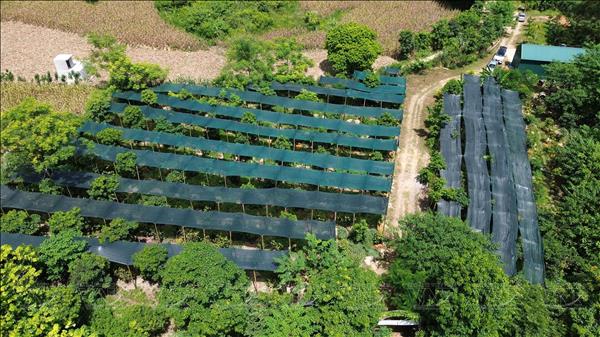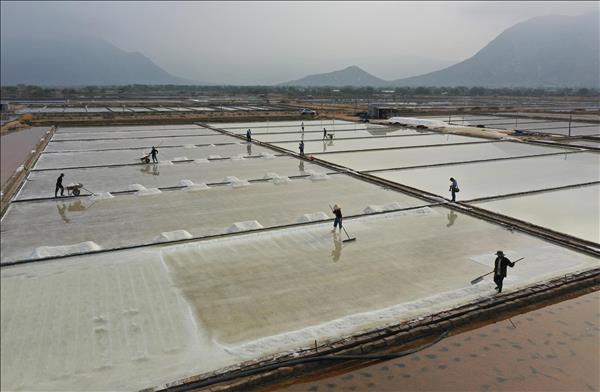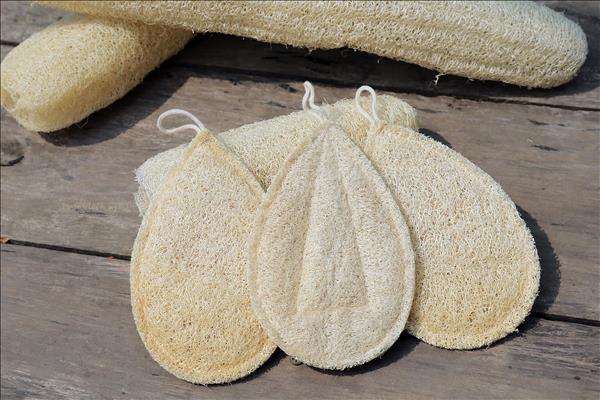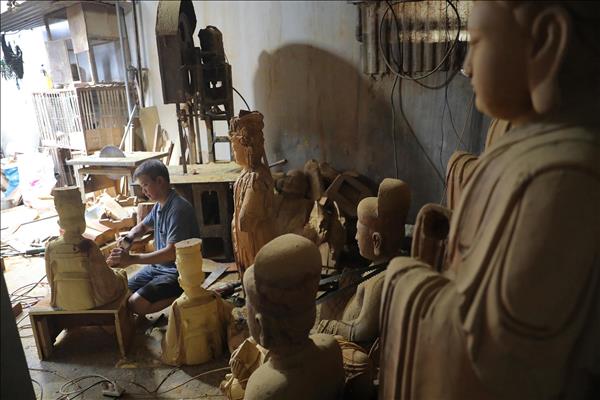Local economy
Temperate fruits of patented cultivar, a competitive advantage for farm products in Son La
The ongoing project "Strengthening leadership, coordination and economic development of the temperate fruit industry in northern Vietnam" is implemented with initiatives that help develop the farming of temperate fruits such as plums, peaches, persimmons, pears, and avocados.
Situated in the basin of the Da river, Moc Chau plateau is an area of subtemperate climate with feralit soil on limestone that has a high humus content, which is advantageous for growing specific fruits of high quality. Temperate and subtropical trees like peach, plum, persimmon, pear, and avocado have been prioritized due to their competitive advantage in Son La's agricultural development for the past decades. These fruit trees also help diversify the farming system, fight erosion on sloping surfaces, and increase farmers' incomes.
However, temperate fruit industry development in Son La faces several challenges, including the farmers' tendency to expand their farming scale when fruit prices go up, leading to supply exceeds demand, thus lowering the prices afterwards. The processing sector can secure output for farm products and help stabilize fruit prices in the fresh market, but processed products in Son La is not diverse (mostly dried fruits and preserves). Processing facilities are on a small scale without modern processing technology and equipment. Son La can otherwise develop various temperate fruit trees to diversify its products and prolong its harvest season. Still, the province is now lacking a protective mechanism for cross breeders, making it difficult to legally access new cultivars with patents.
In order to overcome these issues, ACIAR in collaboration with the provincial authorities and other related private stakeholders has implemented two interactive initiatives: establishing Son La province's temperate fruit association and introducing patented temperate fruit trees to farmers in this province.
Situated in the basin of the Da river, Moc Chau plateau is an area of subtemperate climate with feralit soil on limestone that has a high humus content, which is advantageous for growing specific fruits of high quality. Temperate and subtropical trees like peach, plum, persimmon, pear, and avocado have been prioritized due to their competitive advantage in Son La's agricultural development for the past decades. These fruit trees also help diversify the farming system, fight erosion on sloping surfaces, and increase farmers' incomes.
However, temperate fruit industry development in Son La faces several challenges, including the farmers' tendency to expand their farming scale when fruit prices go up, leading to supply exceeds demand, thus lowering the prices afterwards. The processing sector can secure output for farm products and help stabilize fruit prices in the fresh market, but processed products in Son La is not diverse (mostly dried fruits and preserves). Processing facilities are on a small scale without modern processing technology and equipment. Son La can otherwise develop various temperate fruit trees to diversify its products and prolong its harvest season. Still, the province is now lacking a protective mechanism for cross breeders, making it difficult to legally access new cultivars with patents.
In order to overcome these issues, ACIAR in collaboration with the provincial authorities and other related private stakeholders has implemented two interactive initiatives: establishing Son La province's temperate fruit association and introducing patented temperate fruit trees to farmers in this province.
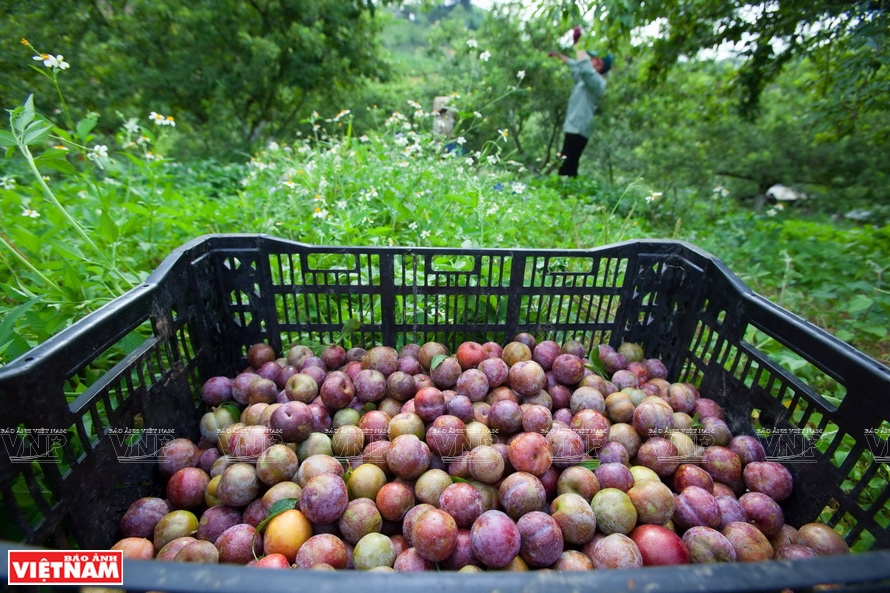 Harvesting plums for prune processing at 19/5 Agricultural development service Cooperative chaired by Mr. Mai Duc Thinh, chairman of Son La province's Temperate fruit association. 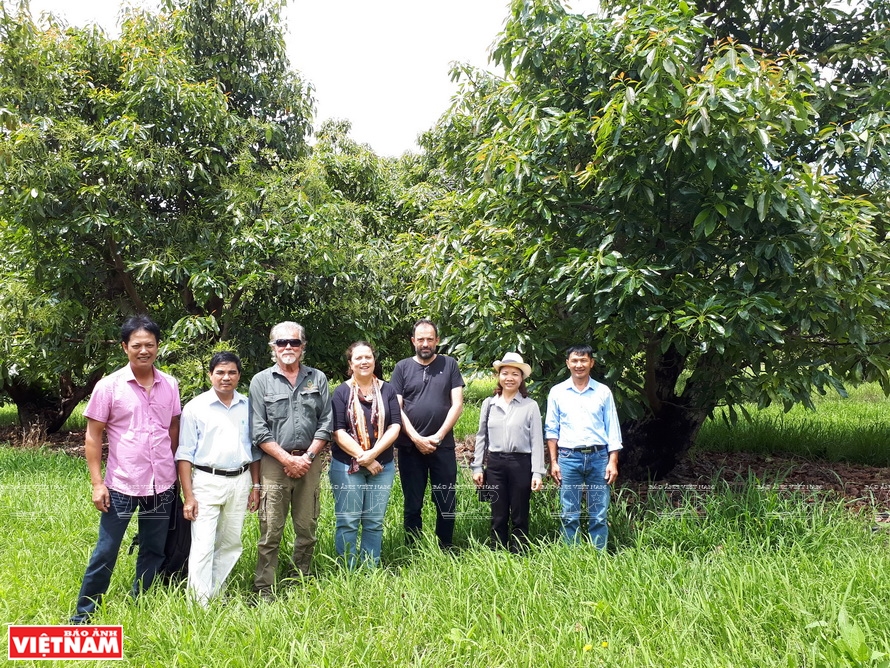 The mobility board of Son La province's temperate fruit association including Mai Duc Thinh (Chairman of 19/5 Cooperative), Ha Van Lan (Director of Son La's Center for flora, fauna, and aquatic breeds), Pham Van Quyet (Quyet Thanh farm's owner), and Cam Thi Phong, Deputy Head of Son La province's Agriculture and Rural development department, during a field trip to Australia in 2018. Photo: ACIAR's Files 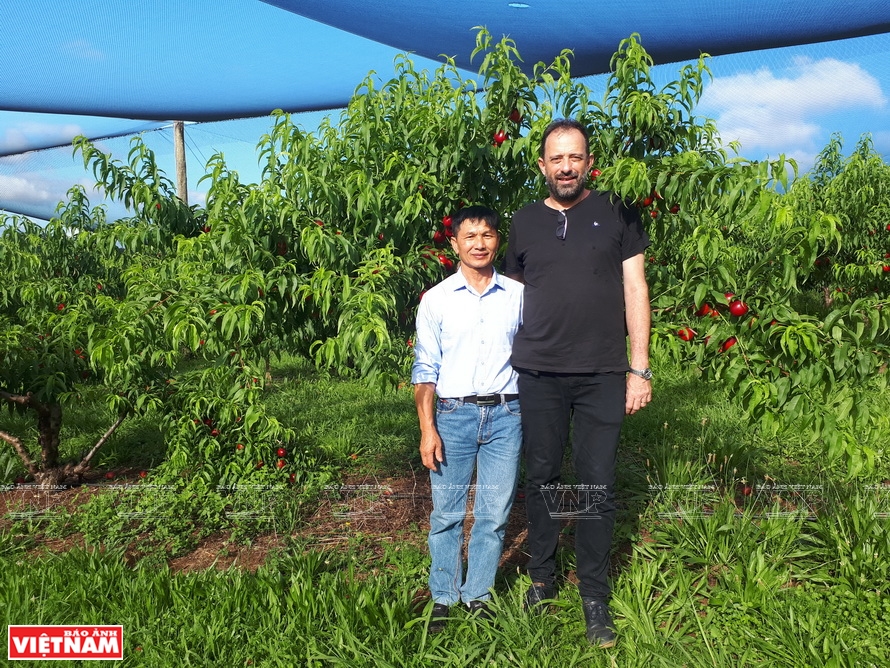 Pham Van Quyet, owner of Quyet Thanh farm in Moc Chau town and Mr. Oleg Nicetic, lecturer at Queensland University and current head of ACIAR's temperate fruit project visit a peach orchard in Australia. Photo: ACIAR's Files 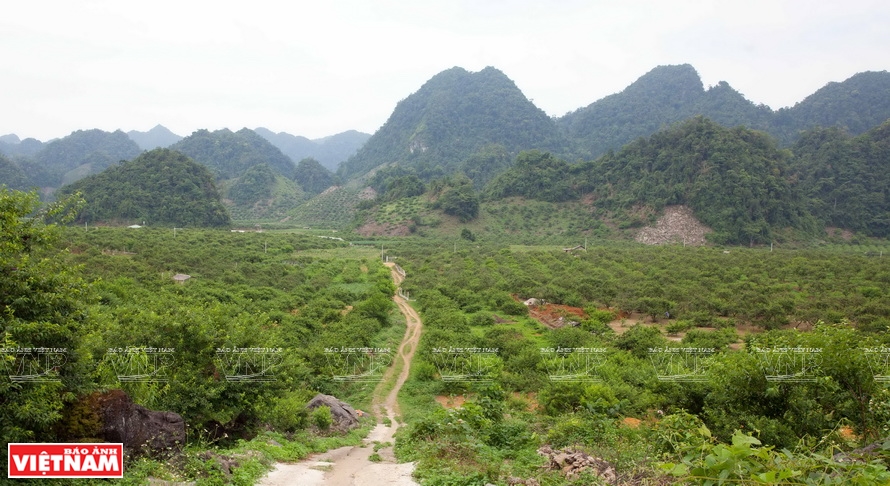 With hundreds of hectares of plums, Na Ka valley (Tan Lap Commune, Moc Chau) is known as the "kingdom" of plums in Son La. 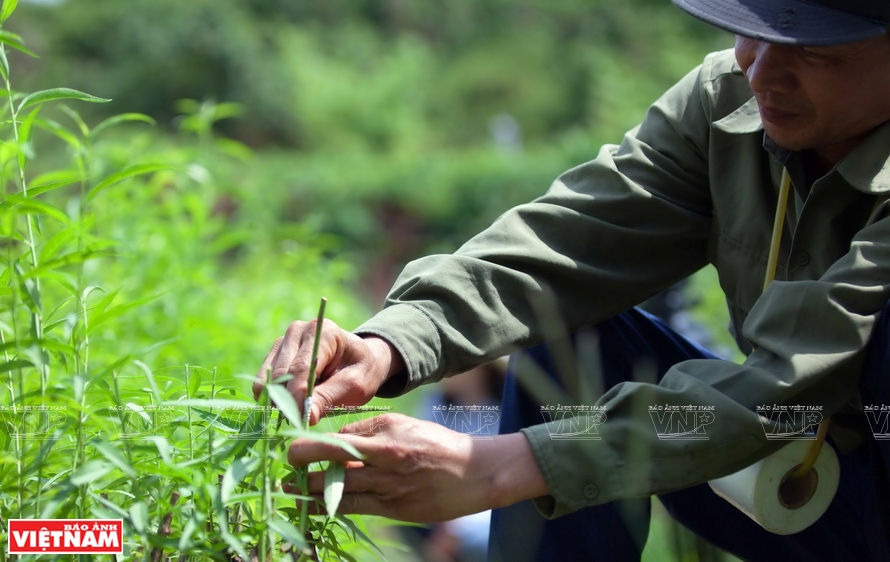 Imported peach breeds were grafted with the local breed to test its adaptability to local environment and climate. 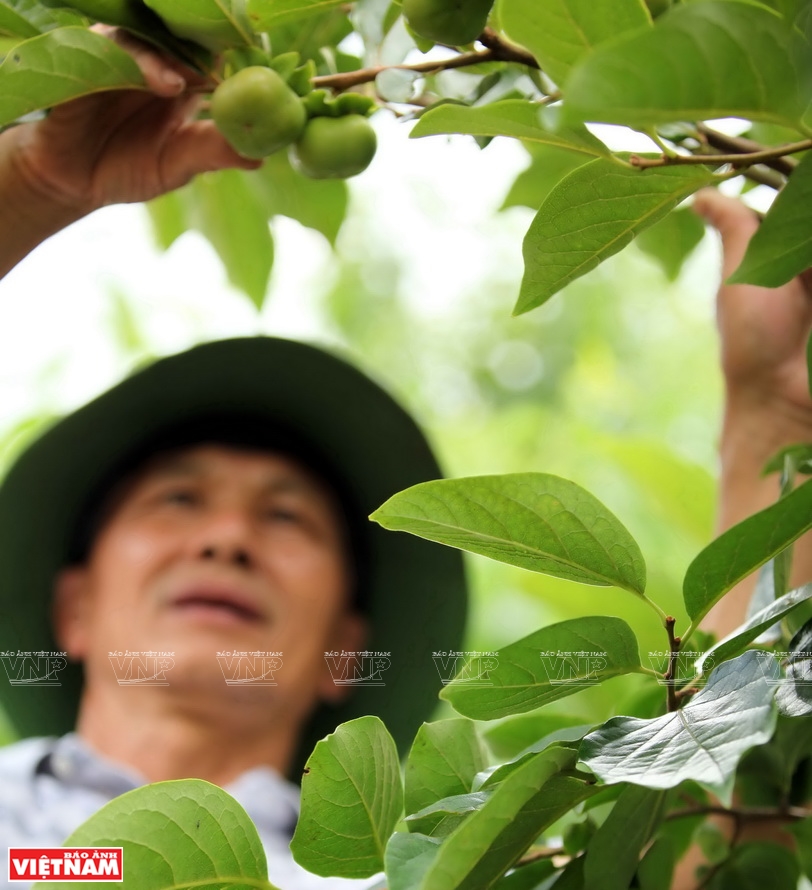 Pham Van Quyet, owner of Quyet Thanh farm, one of the most famous temperate fruit orchards in Moc Chau, is among the first members of Son La province's temperate fruit association. 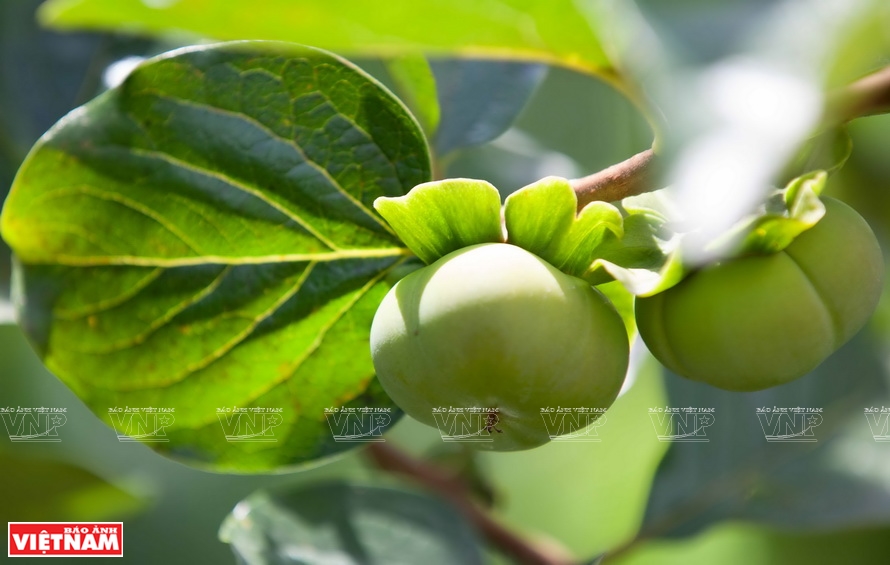 First persimmons resulting from breeds developed within the framework of the ACIAR's temperate fruit project in Quyet Thanh farm. 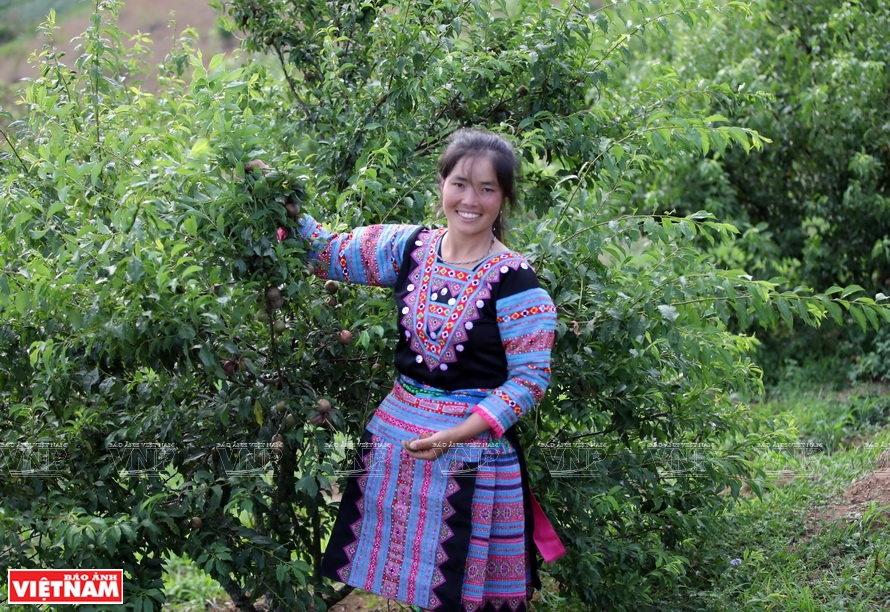 Vang Thi Hoa, a H'mong, received support from ACIAR project to change crops from maize to temperate fruits on sloping surfaces for better income. 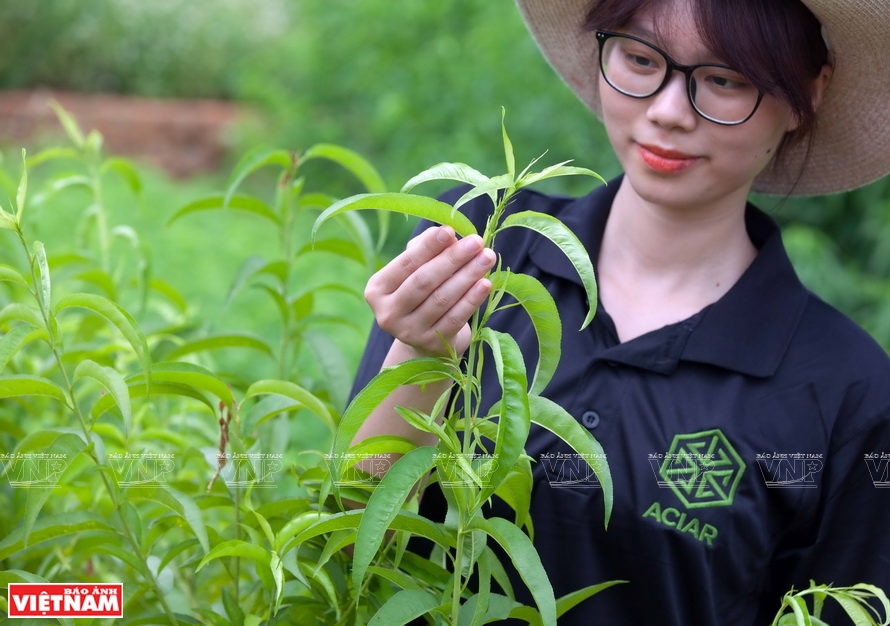 Four imported peach breeds were grafted with the local breed to promote adaptability are now in pilot planning at Son La's Center for flora, fauna, and aquatic breeds. 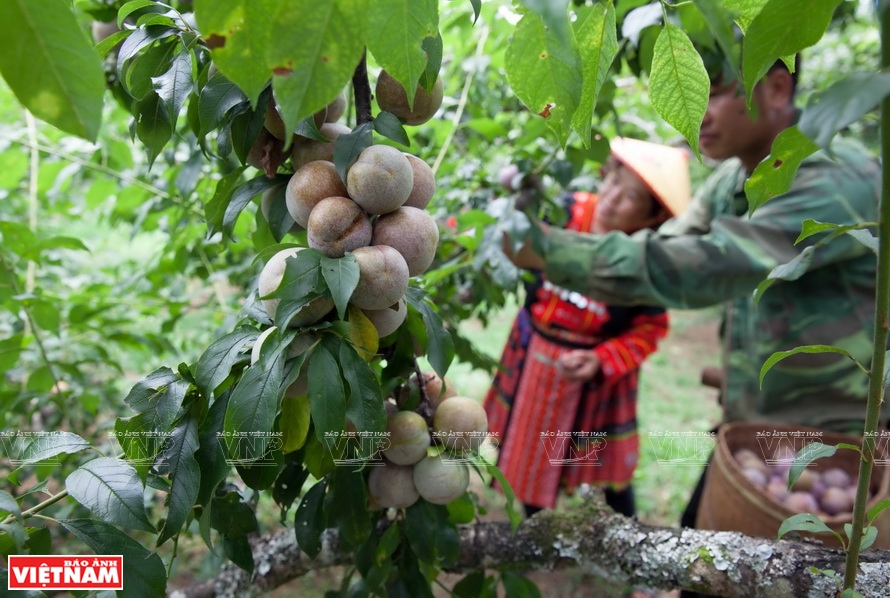 Trang A Dung's family in Pa Khen Hamlet is growing 100 plum trees, a temperate breed of high value and competitive advantage compared to other crops in Son La. 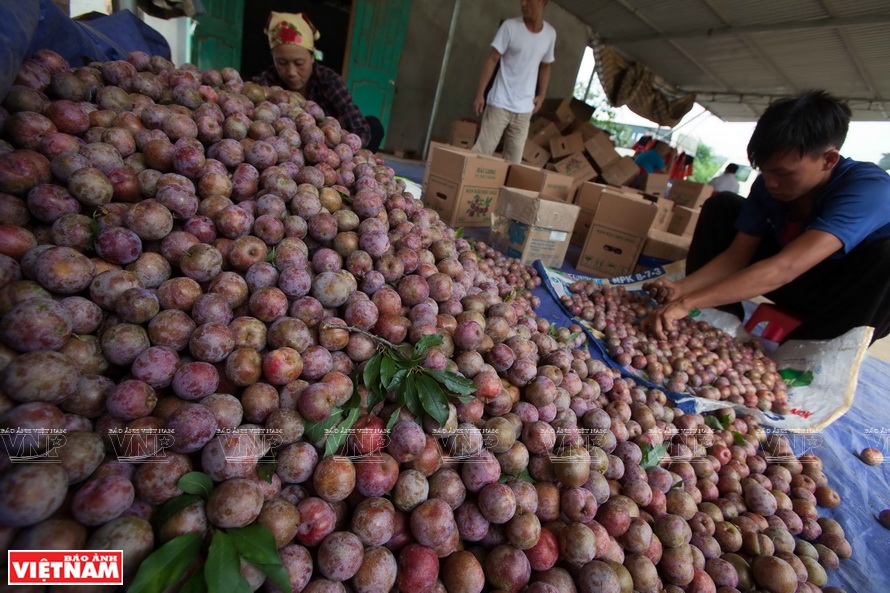 In families, plum ripening season is the time when people are busy harvesting and packing fruits to be traded and sold. 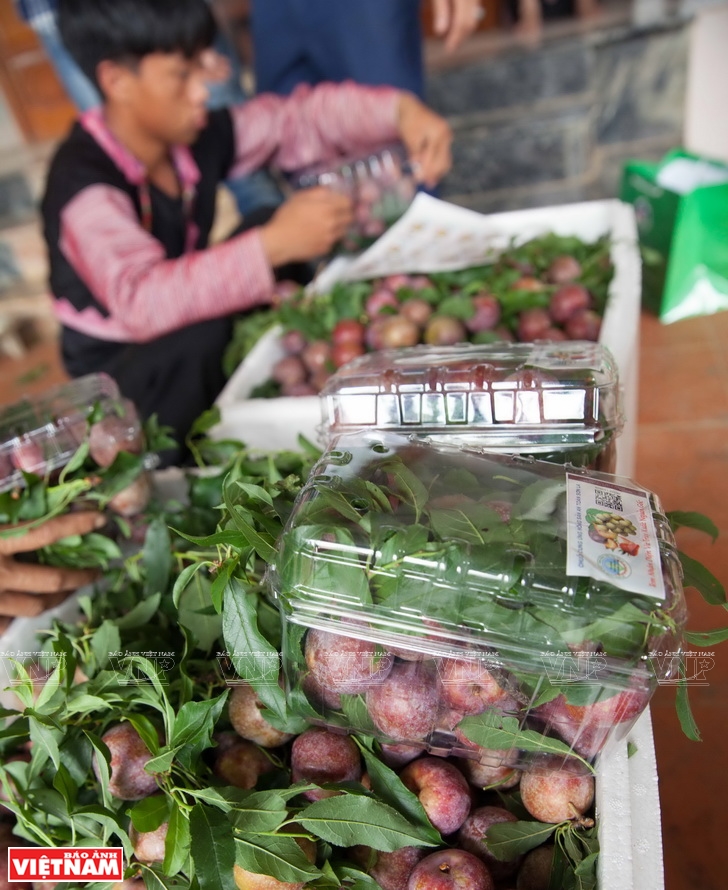 Plums are harvested in the orchards, packed fresh, and labeled with certified stamps at the trading facility of Nguyen Van Xuan, chairman of Moc Chau Clean Farm produce cooperative (Pa Khen area, Moc Chau Farm Town). |
The initiative of establishing a temperate fruit association in Son La was warmly welcomed by local farmers and enterprises because the existence of such an organization is necessary for the sustainable development of the industry. In early June, 2020, Son La province's temperate fruit association was officially established with members including farmers, nurseries, cooperatives, enterprises, businessmen, and processors.
|
"Son La province's temperate fruit association plays an important role in importing cultivars from foreign countries and managing them with patents, contributing to the province's agriculture sector." (Cam Thi Phong, Deputy Head of Son La province's Agriculture and Rural development department) |
Along with the establishment of this association, the project introduces patented temperate fruit cultivars with the aim of diversifying products and prolonging the temperate fruit harvest in Son La, thus expanding the industry's market and increasing its competitive advantage. The project in collaboration with Australian Nurserymen's Fruit Improvement Company (ANFIC) and Son La province's Agriculture and Rural Development Department has brought to the province 4 patented cultivars of peaches with a high quality and fast harvest time that can satisfy consumers as well as minimize losses during harvest. These cultivars were also grafted with local breeds to strengthen its adaptability.
According to Pham Van Quyet, Quyet Thanh farm's owner, one of the first farmers who cooperated with ACIAR's project to plant the newly imported peach cultivars, "Grafted peach trees in my orchard are developing well in Moc Chau's climate, producing buds at the same time as local ones. However, I still need to further observe and wait until harvest time to see if the fruit quality meets requirements and expectations," he said
At the present time, seedlings are being planted and it is expected that by the end of 2020, 1,000 trees will be available to be grown in various ecological areas in the province to examine their adaptability and sustainability in production and brought into market if grown successfully. According to Oleg Nicetic (Queensland University, Australia), Head of the Temperate fruit project at ACIAR, this is a pilot plan to establish a future mechanism for patent management, protection and loyalty collection to which Son La province's temperate fruit association acts as the exclusive licensee for commercialized cultivars in Vietnam. Commercialization of patented cultivars is developed based on three major pillars: cultivar protection, loyalty management, and exclusive supply chain development. ACIAR's project has developed plans to facilitate these activities.
| In Son La, ACIAR has supported local authorities in changing its agriculture structure, developing new products with export advantages. Now, vast maize fields have been changed into orchards that bring about the benefits of hundreds of millions of dong for each ha, promoting economic development and reducing poverty. |
Story: Phuong Ha - Huyen Tram Photos: Trong Chinh & ACIAR's Files

